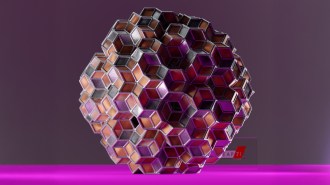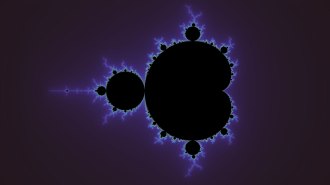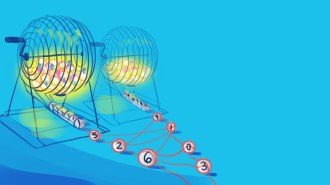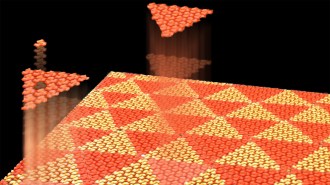May the Best Team Win
Designing a sports schedule so the strongest team prevails
- More than 2 years ago
The winner of the Superbowl or World Series is that season’s best-performing team. Right?

Wrong, according to scientists. And the problem isn’t just the occasional “wild card” team that unexpectedly wins, such as the Florida Marlins bagging the World Series in 2003. A recent study shows that the strongest team in the league ends up with the best record only about 30 percent of the time.
Lady Luck is the confounder. Even if a team is superb, a stray gust of wind, a bad call from a referee, or just a lousy night can make a game go awry. In fact, researchers have found that in baseball games, the team with the stronger record wins only 56 percent of the time—barely better than pure chance.
With a large dose of randomness in the outcome of any particular game, it takes lots of games to ensure that the best team compiles the winningest record. The recent study found that to give a 90 percent chance that the strongest team wins, each baseball team would have to play about 15,000 games in a season.
“That’s a little unrealistic,” admits Eli Ben-Naim, a physicist at Los Alamos National Laboratories in New Mexico and lead author of the study.
So Ben-Naim figured there had to be a better way. He found that a preliminary elimination round or two makes all the difference. After all the teams in a league have played a few games apiece, the weakest teams would be eliminated. The remaining teams would then play some more games to determine the top 3 or 4. Finally, those teams would play lots of games against each other to reduce the role of chance. This system would produce a 90 percent probability of the best baseball team winning, and the number of games per season would be just 150—100 times less than 15,000.
Ben-Naim points out that the use of elimination rounds to increase efficiency and accuracy is nothing new. In college admissions, for instance, most competitive colleges quickly set side the weakest applicants, and after that, spend more time poring over the stronger applicants. “Intuitively, we know this is the way to do it better,” he says, “but science can prove it.”
In sports, though, people don’t always want the strongest team to win, notes Ben-Naim. “People don’t want it to be completely random or completely predictable,” he says. After all, it’s exciting to have the underdog win.
Managers of sports leagues understand this and intuitively design tournaments to balance luck and skill. The researchers ran simulations in which they ranked each team’s strength in advance, and then used the appropriate probabilities to model the outcome of a full season of games. In baseball, the strongest team ended up with the best record only about 30 percent of the time. Remarkably, the same is true of both football and hockey, the researchers found, which may suggest that this percentage provides an ideal balance between predictability and randomness.
The coincidence of those numbers is particularly surprising because baseball’s relatively long season compared with football’s would tend to make a baseball season’s outcome more predictable. But when examining the records of college and professional games, the researchers found individual football games to be more predictable and less subject to chance than individual baseball games. In football, they found, the team with the stronger record wins 64 percent of the time, compared to baseball’s 56 percent. The effects of game length and season length balance one another out, so that both games end up with the same seemingly magical 30 percent predictability rate.
Ben-Naim says he’s a sports fan, but that’s not why he studies sports. He’s interested in understanding competition in all its forms, from companies struggling for market share, to scientists angling for grants, to presidential candidates trying to get elected. Sports are a particularly easy form of competition to study, because the games generate lots of data that researchers can analyze.
If you would like to comment on this article, please see the blog version.






